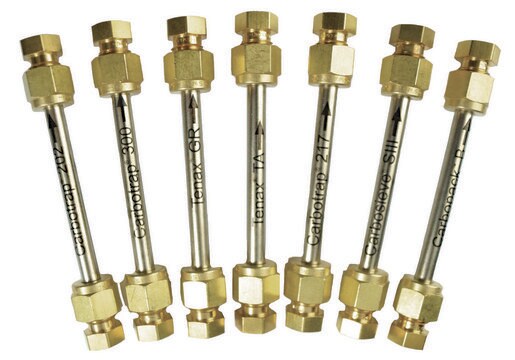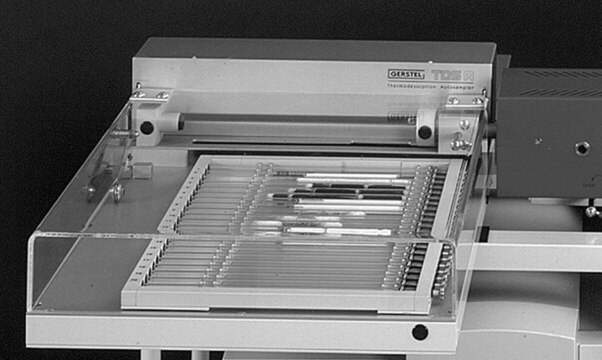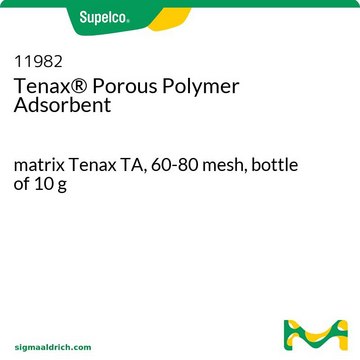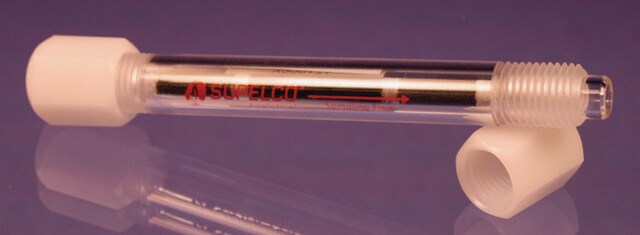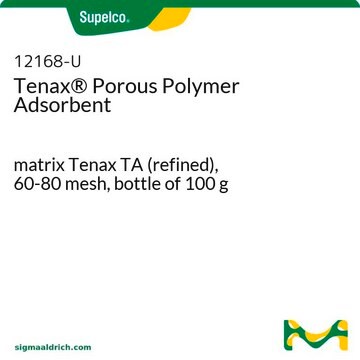30139-U
Carbotrap® 300 Thermal Desorption Tube
stainless steel, O.D. x I.D. x L 1/4 × 3 1/2, unconditioned, pkg of 10 ea
About This Item
Produits recommandés
Nom du produit
Carbotrap® 300, stainless steel TD tube, unconditioned, pkg of 10 ea
Matériaux
stainless steel TD tube
Niveau de qualité
Agence
EPA TO-1,TO-2,TO-3,TO-17
Gamme de produits
Carbotrap®
Caractéristiques
unconditioned
Conditionnement
pkg of 10 ea
Caractéristiques du produit alternatif plus écologique
Waste Prevention
Safer Solvents and Auxiliaries
Learn more about the Principles of Green Chemistry.
sustainability
Greener Alternative Product
Technique(s)
active air sampling: suitable
D.E. × L
1/4 × 3 1/2
Matrice
Carbotrap® 300 graphitized carbon black (GCB)
Application(s)
air monitoring
environmental
industrial hygiene
Compatibilité
PerkinElmer, Markes, DANI, OI Analytical, and Shimadzu Instruments
Autre catégorie plus écologique
Vous recherchez des produits similaires ? Visite Guide de comparaison des produits
Description générale
Informations légales
Code de la classe de stockage
11 - Combustible Solids
Classe de danger pour l'eau (WGK)
nwg
Point d'éclair (°F)
Not applicable
Point d'éclair (°C)
Not applicable
Faites votre choix parmi les versions les plus récentes :
Certificats d'analyse (COA)
It looks like we've run into a problem, but you can still download Certificates of Analysis from our Documents section.
Si vous avez besoin d'assistance, veuillez contacter Service Clients
Déjà en possession de ce produit ?
Retrouvez la documentation relative aux produits que vous avez récemment achetés dans la Bibliothèque de documents.
Notre équipe de scientifiques dispose d'une expérience dans tous les secteurs de la recherche, notamment en sciences de la vie, science des matériaux, synthèse chimique, chromatographie, analyse et dans de nombreux autres domaines..
Contacter notre Service technique
